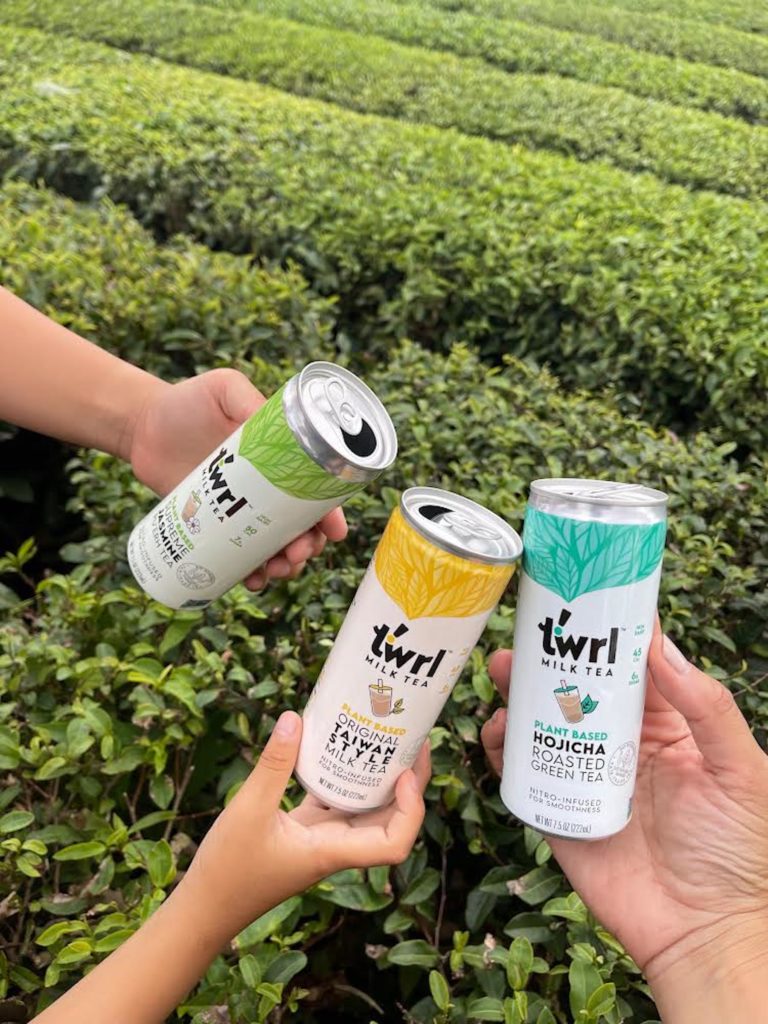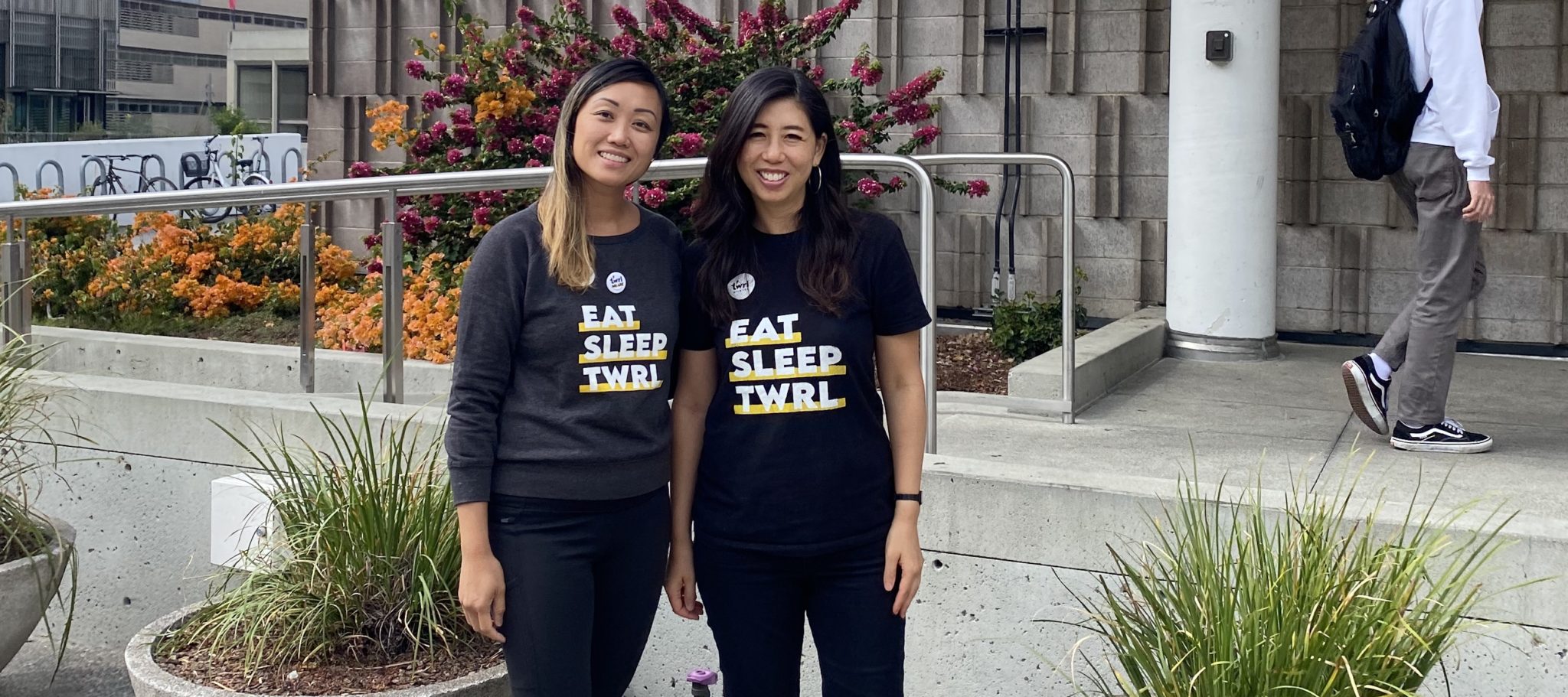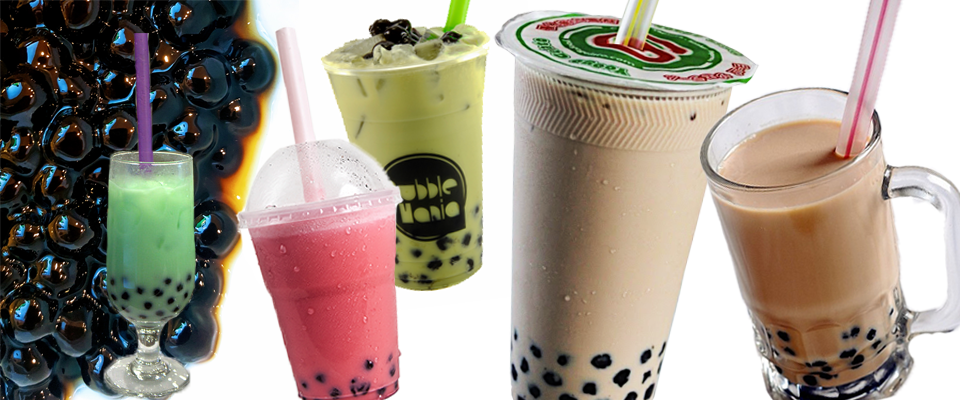Olivia Chen and Pauline Ang have been friends for 20 years. During the pandemic, they decided to start their own canned milk tea company, Twrl. But they wanted to make sure it reflected all of their values: as members of the AAPI community, as moms, and as Berkeley grads. At Berkeley, Twrl is sold at the Golden Bear Cafe.
We discussed how to make sustainable milk tea, the realities of starting a small business, and what it means to design a brand that is reflective of America.
How did this all get started?
Years ago Pauline and I talked about doing a food brand. We had always connected over food. But we are working moms and so life kind of took over, but we always kept in touch. Fast forward to the pandemic, all the boba shops shut down and everything closed. So Pauline started experimenting in her own home kitchen in San Francisco. She bought a fridge, brewed enormous amounts of tea, tested all different types and basically started the process of producing the tea that she wanted, which was the predecessor to Twrl tea: vegetarian, plant based, low sugar, low calories. And then, with all the things that come with the pandemic, it was like, where do you want to put your life priorities? And we were like, okay, well, maybe this is what we want to do.
So we found a food scientist and a co-packer. We always wanted a product that was in a can, on the go, but there was nothing that was a “better for you and better for the planet” version. And so we decided to make it. So we really care about how we source. The teas that we use are from small family farms. When they first got our first order, they cried because they’re such small farms. We helped them get non-GMO certified via our products. Then we chose pea milk because peas are really sustainable. Peas are neutral in taste, unlike soy and almonds. They also use very little water to produce—almonds use a lot of water—and produce very little carbon emissions. And then we also chose to put it in a can, instead of plastic.

Where did you get the name?
Legend has it that a [Chinese] emperor was holding a cup of hot water and a leaf twirled into his teacup and that’s where brewed tea came from. So we love to tell people that tea and milk tea is, not to make a pun, steeped in history and tradition. But we modernized it.
Why tea?
We have a chance to kind of revolutionize the tea industry. In India, England, and all of Asia it’s actually the number one drink for a lot of communities and countries and ethnicity groups. The U.S. is very coffee dominated. So there’s actually a lot of innovation in coffee, like nitro or cold brewed. But in the tea category, there’s not a lot of innovation. But what’s happening now is there’s this proliferation of boba tea shops. My son’s a teenager, that’s where they go. So what better people to start innovating in the tea space and tell that story than two moms that are Asian-American that grew up drinking milk tea. We love this drink. I grew up making it with my relatives. We would concoct teas, making them with red bean and so much cream. Pauline did the same: her father lived in Hong Kong, she grew up in Hawaii, and when they would visit her father, her mother would take her to have a coveted milk tea at the hotel. We both have very nostalgic memories of milk tea, but the milk tea that we see in the cafes is not something that she and I could have every day. It’s super high in calories. It’s not the best ingredients. And it’s also not super portable.
I saw on your website that you’re committed to health, community and sustainability. Can you tell me about the community aspect?
Brands like Coke, Pepsi or even newer brands like Paul Newman; those are brands that have a legacy, a culture, a story, a history. But their founders don’t look like me or Pauline. We want to be a brand that is reflective of America. America is a land of immigrants. Our parents are immigrants. They came to the states to hopefully have a better life for their families and especially our children. They’re super proud that we’re almost doing the American dream, that we’re creating a business and having these opportunities and being able to be role models in the community. So that’s one aspect, but also the aspect of could we create a company that is a fusion of us, of Asian Americans, where we brought something that was from Asia but with a twist, that incorporates our values as moms and values that we also saw from Berkeley. Berkeley focuses on regenerative farming and community and advocacy, and those are things that we incorporate back into Twrl. It’s a fusion of who we are, where we grew up. As AAPI founders, we’re not an Asian brand. We’re not an American brand. We’re an Asian-American brand. And that is really a reflection of the landscape of the U.S.
This was a big pivot for you both. How has it been going?
That’s a great question. Pauline and I talk about how there was a little bit of naivete, to be honest, when we first got into this. We had never run a food beverage company before, and so the learning curve has been steep. Now it’s been about a year and a half. We’ve definitely gained a lot of knowledge and made inroads. It’s a hard industry to be in. It’s hard to stand out. The supply chain affects us. And then there’s a recession. So there’s a lot of macro events that are affecting our business.
We get a lot of people asking, oh, my gosh, I would love to start a company. And I guess the first thing I tell them is, it’s a very, very difficult business. And it takes a lot of time. We called last year ‘year zero.’ We call this year one really. We’re like “is this really what we want?” But now we’re in it and we’re making a lot of traction.




















